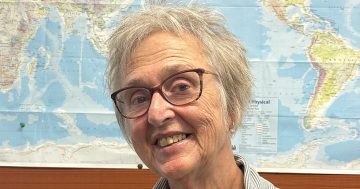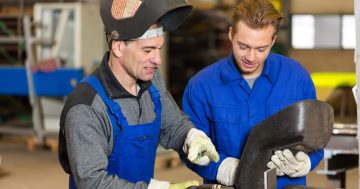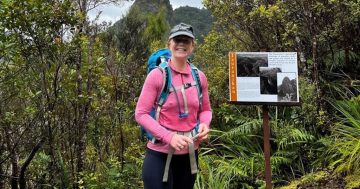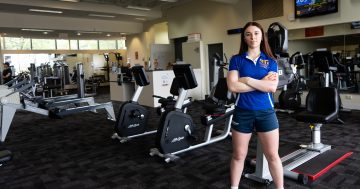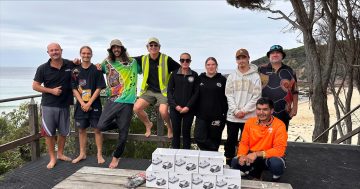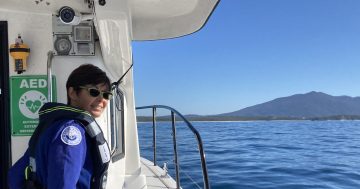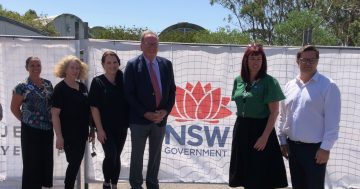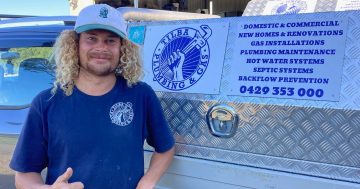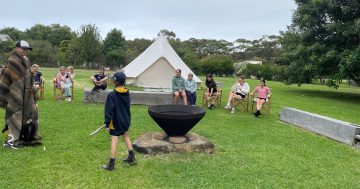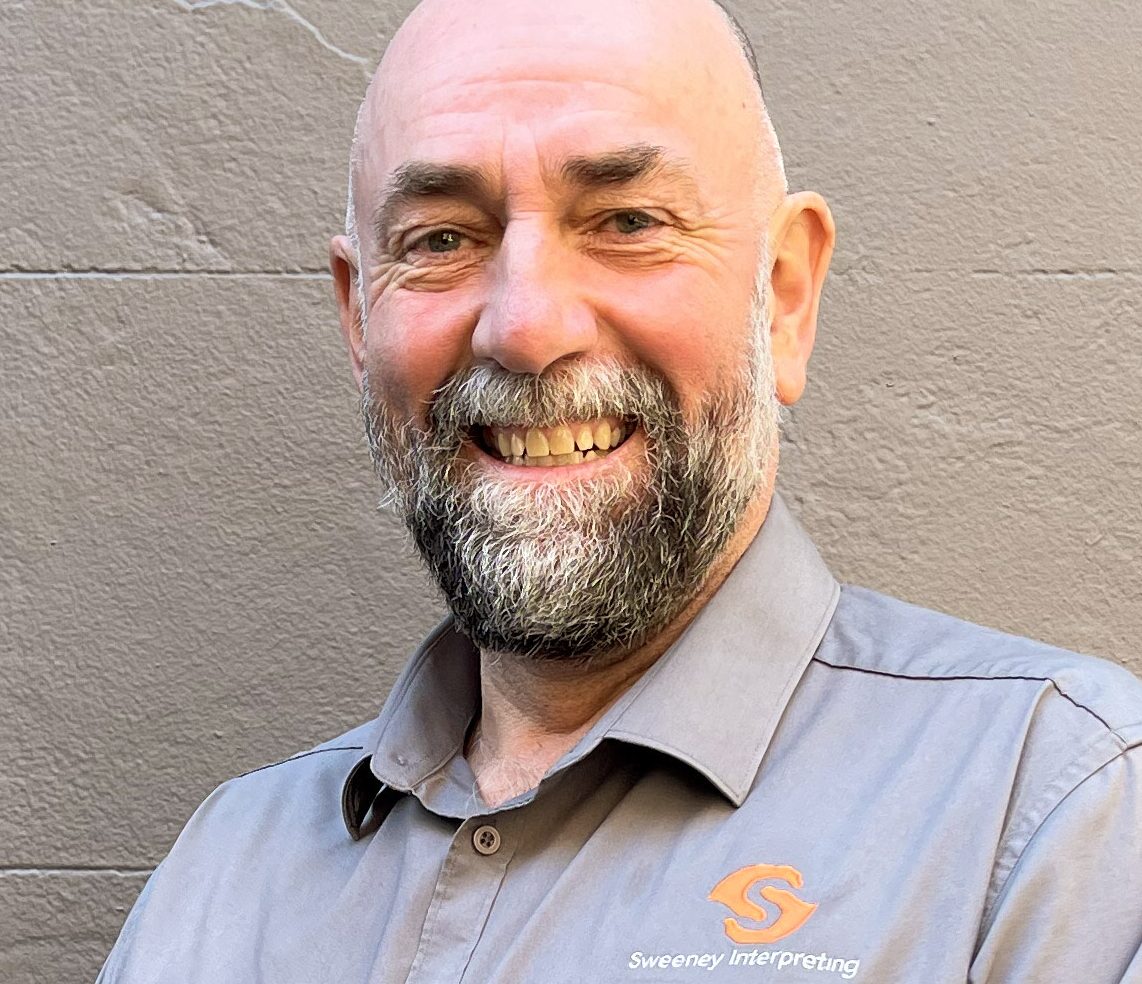
Sean Sweeney was a regular face on our TV screens during the 2019 bushfire emergency. Photo: TAFE NSW.
During the 2019 bushfires, Australians saw his bearded face on television almost every day, but few would recognise the name Sean Sweeney.
As fires raged around the state, the South Coast-based Auslan interpreter was asked to provide his sign language skills to the Rural Fire Service and, while he was nervous in front of the camera at first, he soon became a regular face during the live bushfire emergency updates.
“I baulked at first, but what made me do it was that my dad was on the South Coast and I thought, if I don’t do it, who will?” he said.
“I was petrified. I didn’t understand the depth of emergency announcements.”
After the first broadcast Sean said he was inundated with messages telling him what a great job he’d done.
“The deaf community were excited because they were getting this information. I thought, this worked, and I felt really proud,” he said.
Sean’s confidence grew the more he interpreted, but he said “it was pretty full on”.
“You’re not just interpreting word for word, you’re interpreting the actual visual concept of what’s being said and you’ve got to deliver it in the right structure, not the English structure – most deaf people don’t understand that because English is their second language.
“I had to take the information I was hearing and convert it into layman’s terms at about high school level.
“Even though sign language is my first language, I had to learn how to work in both languages. I had to learn to interpret English and then change it into Auslan at a very fast pace, on national television.”
Sean’s fast signing skills caught the attention of viewers right across the country, not just the deaf community.
“I’ve got a mate who thinks what I did in those weeks I was on TV are the reason why we have interpreters on the screen today,” he added.
Auslan interpreters have since graced our screens during the COVID-19 pandemic and flood emergencies, ensuring members of the deaf community have access to critical information during crises.
Sean is calling for more people with sign language skills to step up and fill the demand for accredited Auslan interpreter services in NSW Government agencies.
According to the Australian Industry and Skills Committee, there are about 260 certified and working Auslan interpreters across Australia, and NSW has the highest proportion of students learning interpreting qualifications.
TAFE NSW is running courses to help meet the growing demand for interpreters, particularly men, in a range of roles throughout the community.
The first born in his family for 100 years who isn’t deaf, Sean said people with Auslan skills of intermediate level were very likely to find a job in the sector.
“You don’t need to necessarily become an interpreter to work with deaf people,” he said.
“If you have fluent sign language skills, you can apply for a number of jobs working with the deaf. There are plenty of opportunities for people with these skills.”
Interpreters can assist members of the deaf community as they navigate everyday situations such as health care, legal and financial appointments.
Daniel Ford is studying the language at TAFE NSW Nowra and enrolled in the course to be able to communicate with his four-year-old great-great nephew who was born deaf.
He says the course has opened a door to a world of new skills and new friendships.
“This course is something I can fit into my routine, and when my great-great nephew is older, I’ll be able to converse with him,” Daniel said.
“The thing with deaf people is, they can’t pick up a phone and just chat with their friends. So they tend to catch up face to face.
“There are lots of different deaf social groups throughout the region who get together regularly. I join in some to practise and learn – they’re great social gatherings.”
Daniel says learning Auslan was a bit like learning a musical instrument. The more you practise it the better you get.
“I started the TAFE course in March, and I have a reasonable level of signing ability now, but I’m still very slow,” Mr Ford said.
For more information about studying Auslan at TAFE NSW visit www.tafensw.edu.au or phone 131 601.







